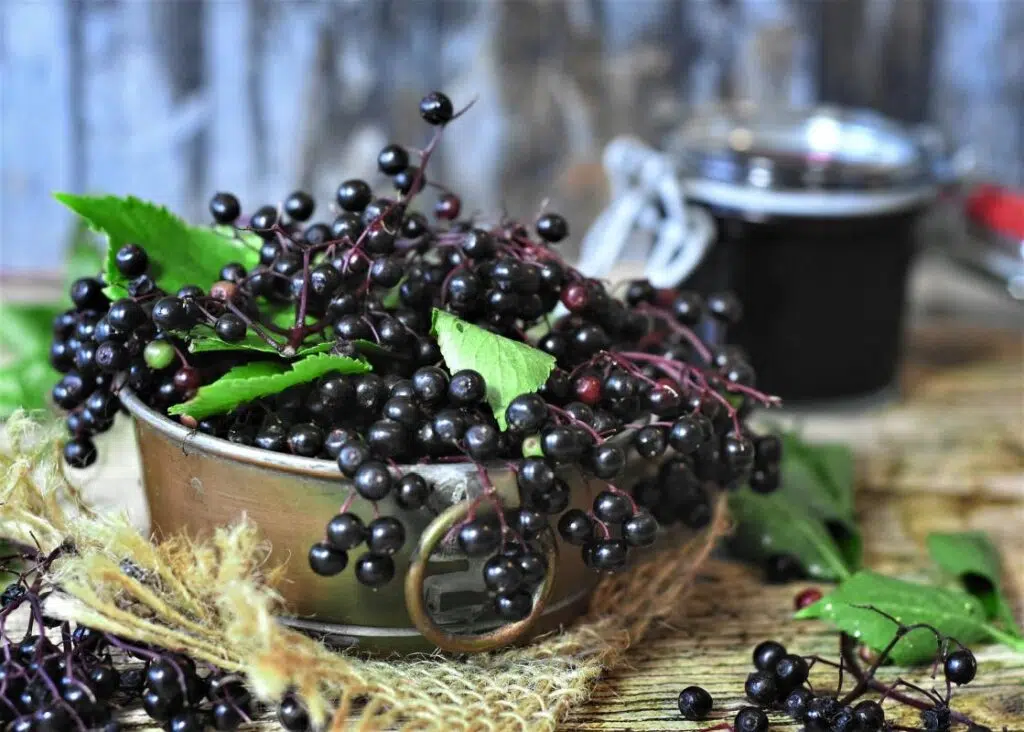The cold and flu season is upon us. Wouldn’t it be great if we could fight the germs with a natural remedy?
If you are looking for an all-natural way to keep those pesky bugs at bay, Elderberry might be your answer.
Elderberry has been used as a folk remedy for centuries. This blog post will discuss that elderberries can help you stay healthy during cold and flu season.

What does Elderberry do for a cold or flu?
There are a few different components of elderberries wellness products that make it such an effective remedy. Elderberry works as a natural antihistamine, decongestant and antioxidant.
It also has antiviral properties which help your immune system fight off germs more effectively.
Does Elderberry kill the flu virus?
There is some evidence to suggest that Elderberry may be able to kill the flu virus.
According to research published in Virology Journal, a protein found in elderberries was shown to block and prevent replication of HINI influenza A/PR/08 viruses.
Does Elderberry prevent colds and flu?
Elderberry is not a guarantee that you will never get sick.
However, if several people in your family suffer from colds and flu each year, Elderberry might be helpful to have on hand when the symptoms start appearing.
What are the active ingredients in Elderberry?
The compounds responsible for most of the health benefits of elderberries include anthocyanins (powerful antioxidants), ursolic acid (anti-inflammatory properties), and flavonoids (boosts immune system).
These components make it helpful when you have cold or flu symptoms and help protect your body against free radicals, which can lead to chronic diseases like cancer.
Is there scientific proof backing up claims about how Elderberry fights colds and flu?
Many scientific studies have found elderberries to be effective in treating the common cold.
For example, one study published by BMC Complementary & Alternative Medicine tested a syrup made from European black elderberries on 162 people suffering from acute respiratory tract infections (common cold or influenza).
It was shown that those who received the elderberry treatment had relief of their symptoms an average of four days earlier than those receiving placebo treatments.
Can you take too much Elderberry?
Elderberry is generally considered safe for most adults when used correctly; it can cause side effects like headaches, nausea, or diarrhea if taken in large doses.

If pregnant or breastfeeding, talk to your doctor before taking any herbal remedies, including elderflower.
Is it better to take elderberry syrup or an extract?
It depends on which components of the plant you want to receive the effects of.
For example, an extract may contain more active compounds than just taking an equivalent dose in dried berries would provide.
Extracts can also be made into forms other than liquid like pills, ointments, and creams for topical use (externally).
A downside is that many extracts lose their effectiveness due to processing at high temperatures during production; they often require refrigeration.
An extract is more expensive than syrup or dried berries; however, it may be easier to take in pill form for those who don’t like the taste of Elderberry (and has no added sugars).
Take note that some companies add honey, cornstarch, and fructose as ingredients, so read labels carefully before purchasing if you would prefer not to consume these items.